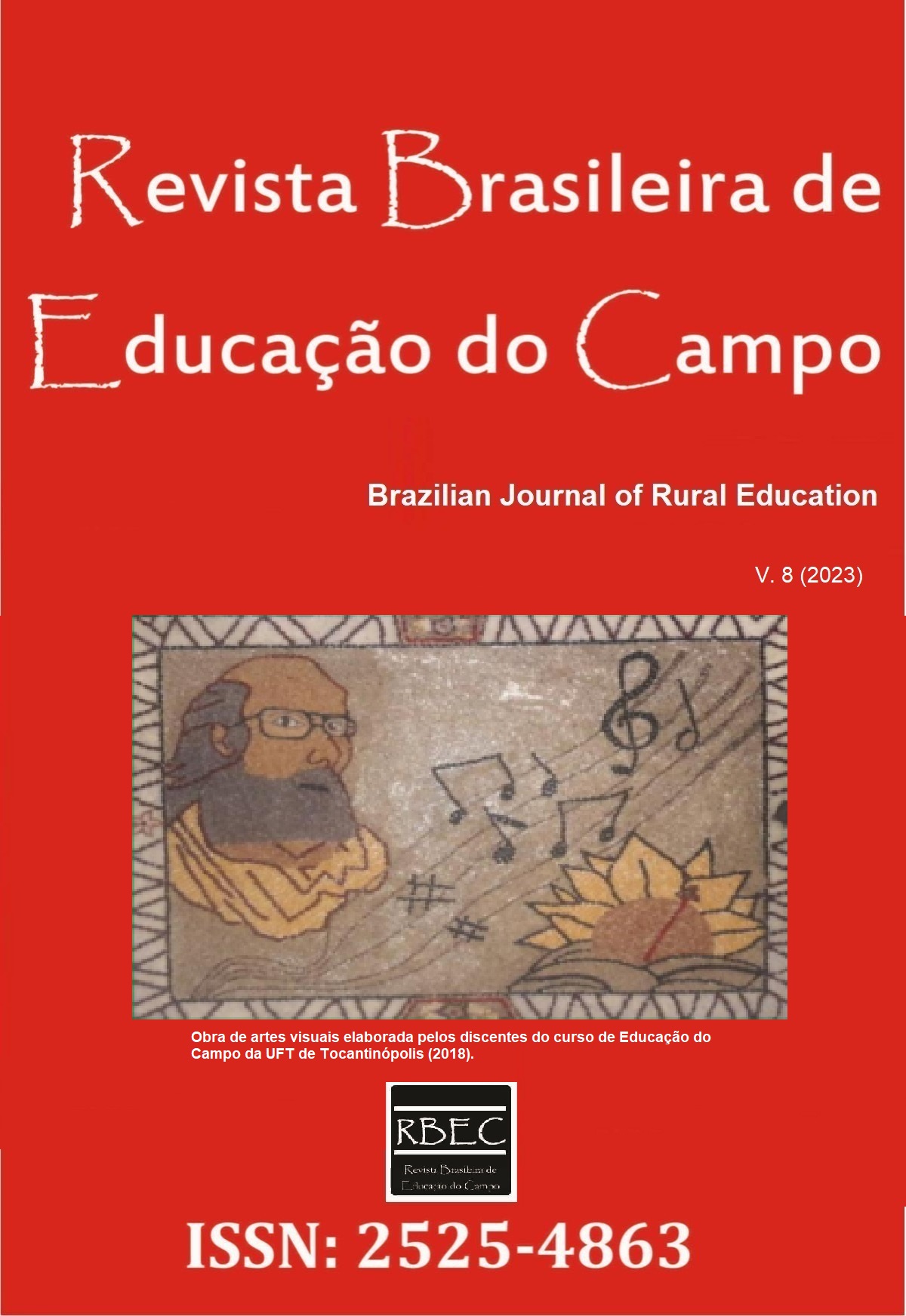Planning in early childhood education and the pandemic context: implications and challenges
DOI :
https://doi.org/10.20873/uft.rbec.e15671Résumé
ABSTRACT. The article aims to understand how it happened and what are the challenges of planning the pedagogical work of Early Childhood Education (ECE) teachers in the context of a pandemic. We opted for a qualitative and exploratory approach with field research, with interviews with teachers from a preschool in the city of Tocantinópolis/TO, as research strategies. We carried out a bibliographical research considering the relevant literature and legislation. The results show the challenges for planning in ECE in the pandemic context, such as the lack of economic and technological resources, lack of knowledge and ability to use technologies to work with young children, excessive time in front of the computer and difficulties with connectivity. The study can provide reflection on the importance and challenges of Planning in EI through literature, legal documents and provisions for the construction of pedagogical and curricular proposals in EI, as well as the challenges of teachers in EI with the dimension of planning in the pandemic, especially in relation to the use of technologies as methodological strategies for remote work with children.
Téléchargements
Références
Araújo, F. P. (2010). Planejamento pedagógico na educação infantil.
Abuchaim. B. O. (2018). Panorama das políticas de educação infantil no Brasil Brasília. Recuperado de: https://unesdoc.unesco.org/ark:/48223/pf0000261453
Brasil. Constituição (1988). Constituição da República Federativa do Brasil. Brasília, DF: Senado, 1988.
Brasil. (1990). Lei n. 8.069, de 13 de julho de 1990. Dispõe sobre o Estatuto da Criança e do Adolescente e dá outras providências. Diário Oficial da União, Brasília, DF, 16 jul. Seção 1, (pp. 13563-577).
Brasil. (1996). LDB - Lei nº 9394/96, de 20 de dezembro de 1996. Estabelece as Diretrizes e Bases da Educação Nacional. Brasília: MEC.
Brasil. (1998). Ministério da Educação e do Desporto. Secretaria de Educação Fundamental. Referencial curricular nacional para a educação infantil. Brasília: MEC/SEF.
Brasil. (2001). Plano Nacional de Educação (PNE). Lei Federal nº 10.172, de 9/01/2001. Brasília: MEC.
Brasil. (2006). Política Nacional de Educação Infantil: pelo direito das crianças de zero a seis anos à educação. Brasília: MEC, SEB, (p. 32).
Brasil. (2009). Ministério da Educação. Secretaria de Educação Básica. Diretrizes curriculares nacionais para a educação infantil. Brasília: MEC, SEB.
Brasil. Ministério da educação. Base Nacional Comum Curricular (2017). Recuperado de: http://basenacionalcomum.mec.gov.br/images/BNCC_EI_EF_110518_versaofinal_site.pdfOL
Fullgraf, J., & Wiggers, V. (2014). Educação infantil: projetos e práticas pedagógicas. Brasília: Liber Livros.
Gama, C. V. N., Cerqueira, M., A., & Zampieri, P. (2021). Educação infantil em tempos de pandemia: quando uma máquina do tempo aproxima as distâncias. Revista Interinstitucional Artes de Educar, 7(1), 522-548. https://doi.org/10.12957/riae.2021.55378
Libâneo, J. C (2013). Didática. São Paulo: Cortez. https://doi.org/10.12957/riae.2021.55378
Ostetto, L. E. (Org.). (2000). Planejamento na educação infantil mais que a atividade, a criança em foco. In Ostetto, L. E. (Org.). Encontros e encantamentos na educação infantil: partilhando experiências de estágios (s./p.). Campinas: Papirus.
Rosemberg, F. (2001) Avaliação de programas, indicadores e projetos em educação infantil. Revista Brasileira de Educação, (16), 19-26. https://doi.org/10.1590/S1413-24782001000100003
Santos, J. B., & Correira (2021). Políticas públicas de educação infantil em contexto de pandemia: considerações a partir da realidade de Brasil e Itália. Zero-a-Seis, 23, 195-220. https://doi.org/10.5007/1980-4512.2021.e79038
Santos, J. B., Peixoto, V. E., & Silva, T. R. (2022). As políticas curriculares BNCC e BNC - formação no contexto da educação infantil: reflexos para a educação das relações étnico-raciais. Debates em Educação, 14, 86-108. https://doi.org/10.28998/2175-6600.2022v14nEspp86-108
Téléchargements
Publié-e
Comment citer
Numéro
Rubrique
Licence
© Erika Cristina Pereira Guimarães, Joedson Brito dos Santos 2023

Cette œuvre est sous licence Creative Commons Attribution 4.0 International.
Proposal for Copyright Notice Creative Commons
1. Policy Proposal to Open Access Journals
Authors who publish with this journal agree to the following terms:
A. Authors retain copyright and grant the journal right of first publication with the work simultaneously licensed under the Creative Commons Attribution License that allows sharing the work with recognition of its initial publication in this journal.
B. Authors are able to take on additional contracts separately, non-exclusive distribution of the version of the paper published in this journal (ex .: publish in institutional repository or as a book), with an acknowledgment of its initial publication in this journal.
C. Authors are permitted and encouraged to post their work online (eg .: in institutional repositories or on their website) at any point before or during the editorial process, as it can lead to productive exchanges, as well as increase the impact and the citation of published work (See the Effect of Open Access).














